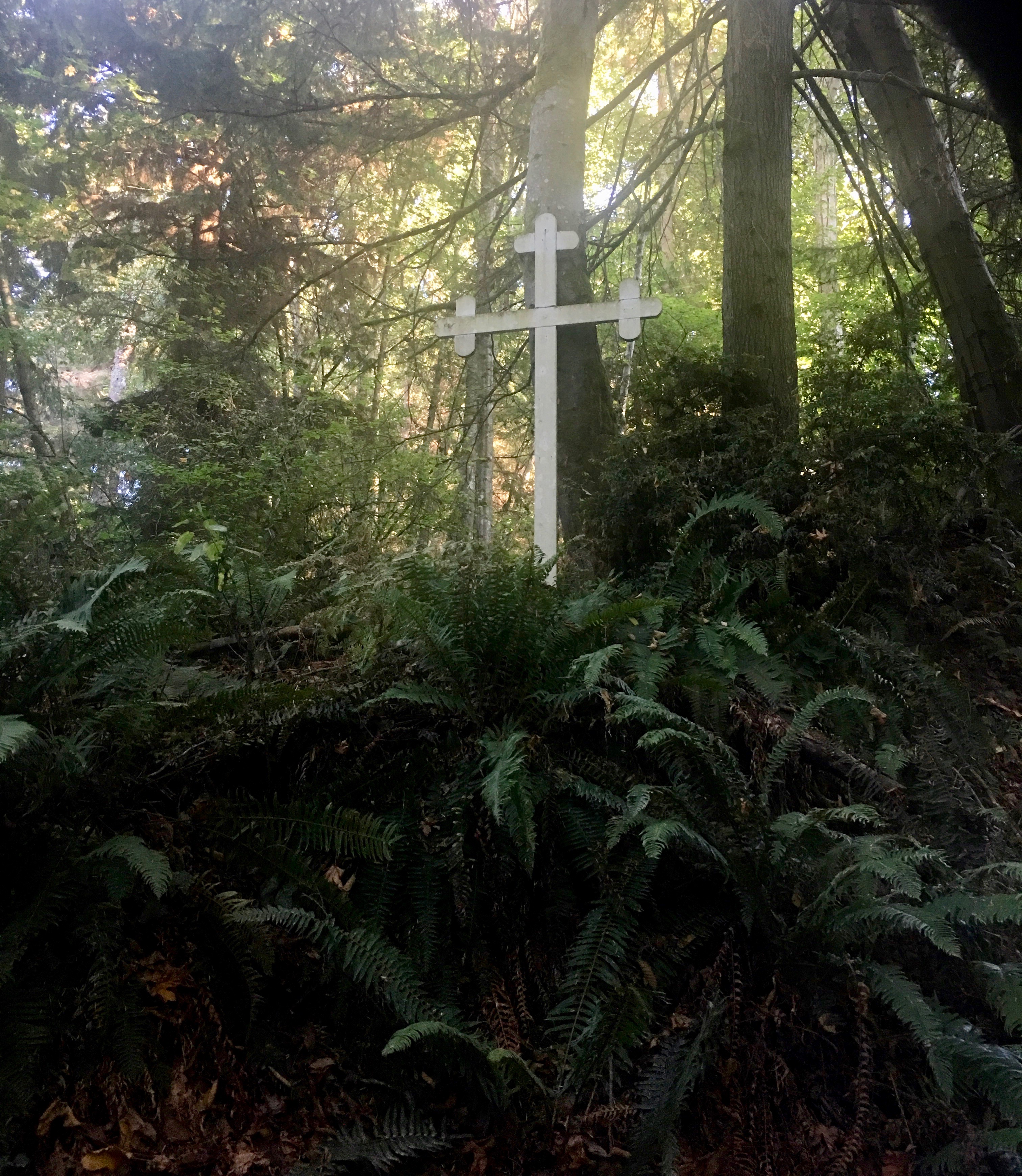Mary Magdalene, and the other women who were present at the burial of our Saviour on Friday evening, returned from Golgotha to the city and prepared fragrant spices and myrrh, so that they might anoint the body of Jesus. On the morrow, because of the law which forbids work on the day of the Sabbath, they rested for the whole day. But at early dawn on the Sunday that followed, almost thirty-six hours since the death of the Life-giving Redeemer, they came to the sepulchre with the spices to anoint His body. While they were considering the difficulty of rolling away the stone from the door of the sepulchre, there was a fearful earthquake; and an Angel, whose countenance shone like lightning and whose garment was white as snow, rolled away the stone and sat upon it. The guards that were there became as dead from fear and took to flight. The women, however, went into the sepulchre, but did not find the Lord's body. Instead, they saw two other Angels in the form of youths clothed in white, who told them that the Saviour was risen, and they sent forth the women, who ran to proclaim to the disciples these gladsome tidings. Then Peter and John arrived, having learned from Mary Magdalene what had come to pass, and when they entered the tomb, they found only the winding sheets. Therefore, they returned again to the city with joy, as heralds now of the supernatural Resurrection of Christ, Who in truth was seen alive by the disciples on this day on five occasions.
Our Lord, then, was crucified, died, and was buried on Friday, before the setting of the sun, which was the first of His "three days" in the grave; observing the mystical Sabbath, that "seventh day" in which it is said that the Lord "rested from all His works" (Gen. 2:2-3), He passed all of Saturday in the grave; and He arose "while it was yet dark, very early in the morning" on Sunday, the third day, which, according to the Hebrew reckoning, began after sunset on Saturday.
As we celebrate today this joyous Resurrection, we greet and embrace one another in Christ, thereby demonstrating our Saviour's victory over death and corruption, and the destruction of our ancient enmity with God, and His reconciliation toward us, and our inheritance of life everlasting. The feast itself is called Pascha, which is derived from the Hebrew word which means "passover"; because Christ, Who suffered and arose, has made us to pass over from the curse of Adam and slavery to the devil and death unto our primal freedom and blessedness. In addition, this day of this particular week, which is the first of all the rest, is dedicated to the honour of the Lord; in honour and remembrance of the Resurrection, the Apostles transferred to this day the rest from labour that was formerly assigned to the Sabbath of the ancient Law.
All foods allowed during Renewal Week.


